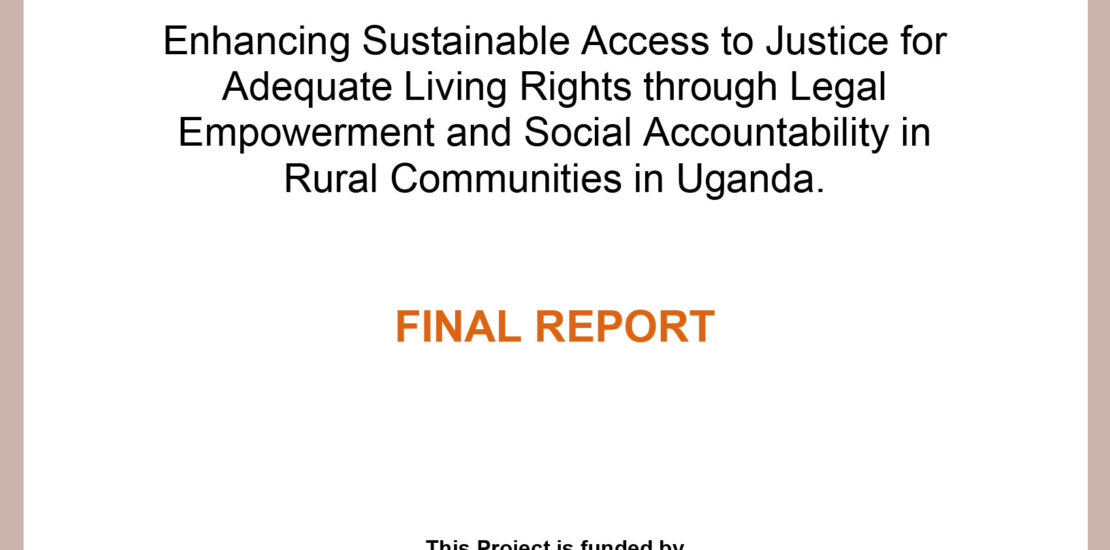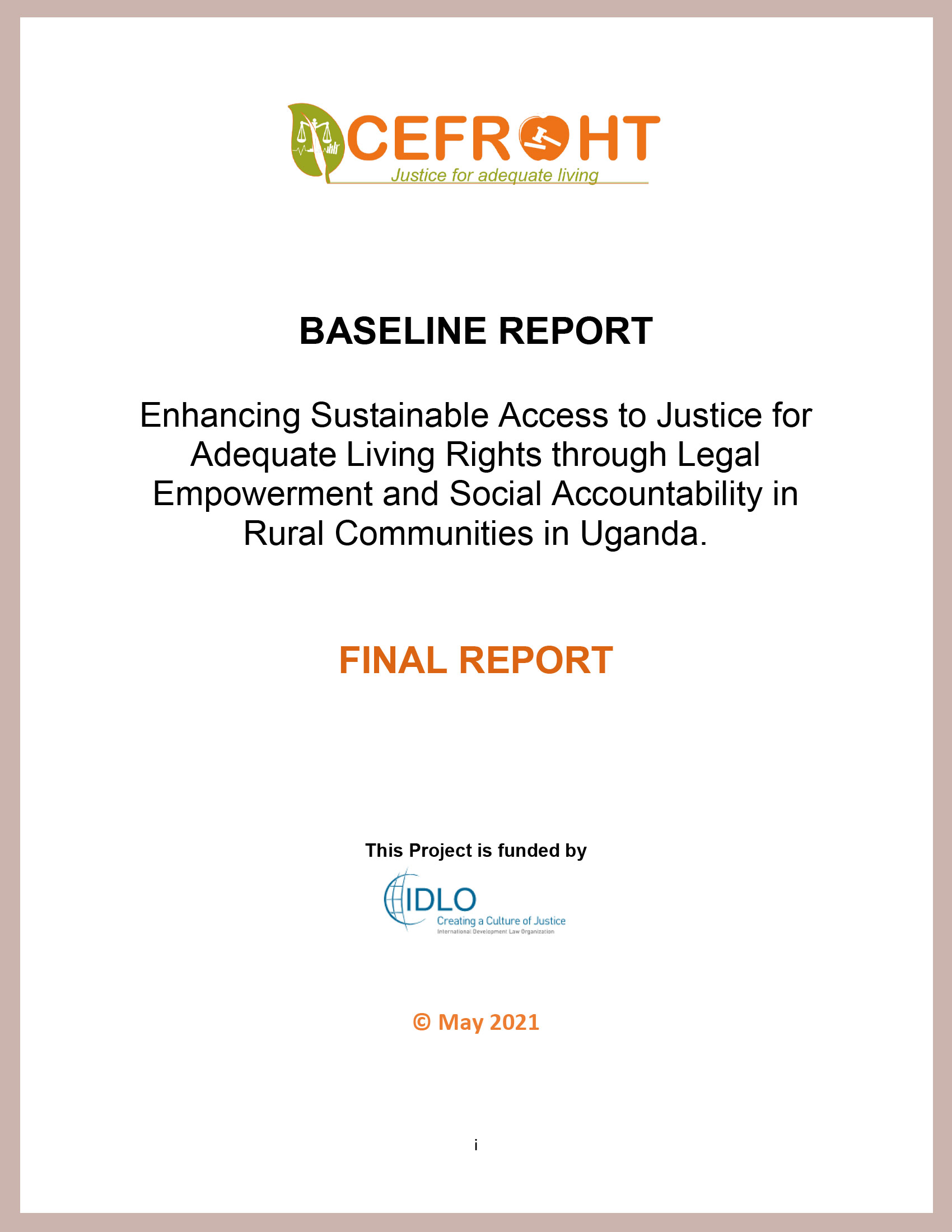Baseline Report Reveals Critical Gaps in Rural Ugandan Communities’ Awareness and Capacity to Claim Adequate Living Rights
- May 2, 2021
- Posted by: CEFROHT Reporter
- Category: Publications

Baseline Report Reveals Critical Gaps in Rural Ugandan Communities’ Awareness and Capacity to Claim Adequate Living Rights

This baseline study, commissioned by the Centre for Food and Adequate Living Rights (CEFROHT) and conducted by MACO Consulting, establishes the foundational status of key indicators for the project “Enhancing Sustainable Access to Justice for Adequate Living Rights through Legal Empowerment and Social Accountability in Rural Communities in Uganda.” The report analyzes data from 435 households and numerous qualitative interviews across the districts of Buyende, Kiboga, and Kyankwanzi. It finds critically low awareness levels among justice seekers regarding fundamental human rights (33.33%), the Human Rights (Enforcement) Act, 2019 (7.9%), and its specific redress mechanisms (0%). The capacity to claim adequate living rights is severely limited, with only 19.54% of respondents feeling capable of seeking redress, hindered primarily by a lack of knowledge, fear of not being listened to, and cost. The study identifies a strong preference for informal justice mechanisms like Local Councils (LCs) over the formal court system (used by only 7.36%). It also highlights significant socio-economic vulnerabilities, including high illiteracy rates (66% illiterate or semi-illiterate), large household sizes, and limited asset ownership. The report concludes that these communities face substantial barriers to accessing justice and provides strategic recommendations. These include reviewing project indicators and targets, extending the project duration, adopting a dual top-down and bottom-up intervention approach, strengthening existing community structures, complementing rights awareness with livelihood training, and developing simplified, localized Information, Education and Communication (IEC) materials to bridge the vast information gap and empower rural vulnerable populations to claim their adequate living rights.
